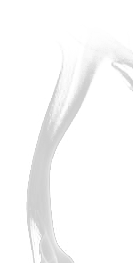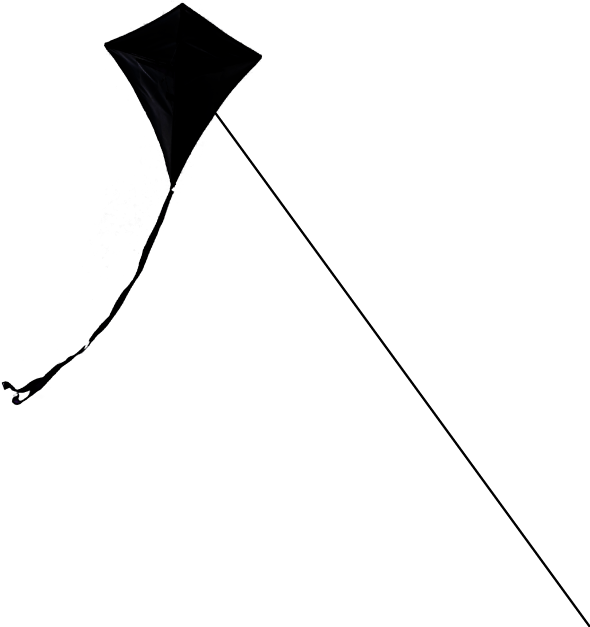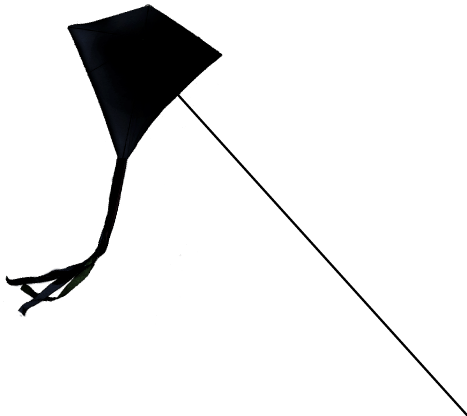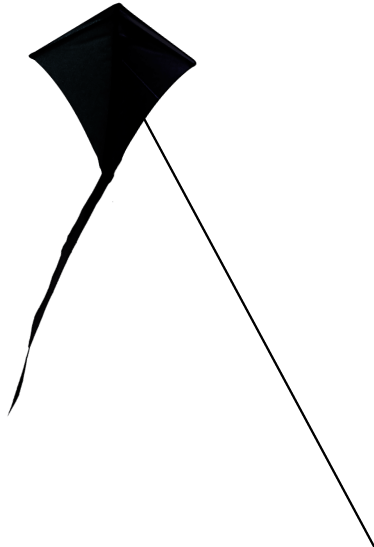Sorcerer
Romberg watched his students betray the secrets of the illusion with their clumsy movements. It was a classic thumb tip effect. Each child received a plastic thumb in which they would conceal a handkerchief. These kids, reeking of privilege and arrogance, were more interested in waving the tips around, snickering and snorting. Money well spent, Romberg thought.
His old metal chair creaked loudly as he leaned back. A dull ache throbbed deep within the muscles of his legs. Romberg rubbed at them, but when his fingers touched the bulging and twisted varicose veins near his ankle, he shuddered and retreated. Outside, the summer sun was softening the tar and sulfurous fumes snuck in through the cracks of the windowpanes. The air made Romberg dizzy, yet the children seemed unaffected. They were as loud and rambunctious as ever, except for Asda.
He was the best of the lot. Twelve years old, from Thailand. The other kids readily accepted their roles as capricious, uncontrollable juveniles, but Asda was quiet and studious. He sat by himself in the corner and practiced the handkerchief trick. By his second try, Asda waved his empty hands in the air and there was nary a thread showing. The child looked up and met the teacher’s gaze.
“Mr. Romberg,” he said in a slight, squeaky voice, “does this look correct?”
“That’s perfect, Asda. Great job.” The boy smiled briefly, put his head down, and pulled off his fake thumb. “Did everyone see Asda perform the trick? You should watch him for a good lesson.” The other children continued their conversations, shifting in their seats and twirling their thumbs.
“Asda,” Romberg continued, “come up and show everybody.” The boy rose silently and walked to the front of the room, hugging the wall. Only a handful of the students bothered to look up. Asda stuffed the handkerchief into his hand, one finger at a time, and ended with his thumb. When he opened his hands, he revealed nothing. There wasn’t much flair to his performance, but his technique was beautiful.
“Thank you, you can sit down now.” Asda blushed and retreated to his seat. “There was only one problem as I could see it. An important one, considering the end of semester performance. Anyone know what it is?” A couple of the children whispered to themselves and giggled. Romberg stood up slowly, chair squealing and knees cracking. He walked around his desk and stood in front of the classroom.
“When you perform anywhere, you must be at center stage. If this was a stage, this would be the center,” he said, stamping one foot, “To my right is stage right, even though it’s your left. Stage left is your right. Does that make sense?” Some of them nodded, while others emitted a muffled “yes.” Asda’s eyes were locked onto Romberg, as wide as spotlights.
“Center stage is where the audience is drawn. I saw this play at the civic center once. The very first scene, a solitary man walks onto the stage. Stage right.” Romberg shuffled over to the wall. He turned around and started to limp toward the middle of the room.
“A peasant. He was dressed in rags and pulled a loaded cart behind him. He was silent except for the grunting and groaning that is required when you pull such a heavy cart.” Romberg pulled his left hand behind him as he limped, contorting his face into a look of intense pain. When he reached the center, he faced the students, raised one clawed hand toward the heavens, and cried out ‘Why?’”
Romberg lowered his hand and looked out toward the children. “It was incredibly powerful. The audience at first looked at him with sympathy and when the man reached center stage, when he commanded everyone’s attention, he asked the one question that plagues everyone when they’re born: ‘Why?’”
The room was silent. The children fidgeted in their seats. Romberg exhaled a heavy breath and dropped his shoulders. He looked up at the clock. Quarter after ten.
“All right, gang. See you tomorrow. We’ll use ropes and learn a great trick called the Professor’s Nightmare,” he said. The kids ignored their teacher as they rushed out the door, but Asda smiled as he left. Romberg collapsed onto his chair and glanced out of the window as fumes continued to pour into the room. He swallowed a few ibuprofen tablets and waited for his pain to end.
Apprentice
The community college consisted of Brutalist towers of grim concrete, each reflecting the sun’s heat and light onto all corners of the campus. A solitary tree stood near the parking lot, and beneath its meager shade Asda sat on a bench. A heavy book about cryptozoology was spread out on his bony lap and he was completely absorbed in a chapter on Bigfoot. At the slightest sound of a car’s engine, however, he would lift his head up and look toward the entrance of the parking lot. He wondered if any undiscovered animals lived in the wilds of western Massachusetts. Asda unfolded his hands over the pictures of ape-like creatures, closed his eyes, and tried to imagine what those New England beasts would look like.
The glass doors behind him swung open and Romberg lumbered out into the heat, chewing on an unlit cigar. He stopped next to Asda and waved a glowing lighter in front of his cigar. Dense gray smoke rose up slowly from his mouth and into his white moustache.
“Asda. Waiting for your pop?” The boy looked up at Romberg and squinted against the brightness of the day.
“Hello, Mr. Romberg. Yes, my father should be here soon. I really enjoyed today’s lesson.”
“Son, you’re the best one in the class,” Romberg responded. “It takes you no time to learn a trick. I think you’re a natural.”
“Thank you,” Asda replied. Romberg drew from his cigar and exhaled a perfect circle that slowly floated away before disappearing into the heat. A bead of sweat rolled into Asda’s eye, and he wiped it away with his fist.
“It’s just too hot out,” Romberg said. “How long will it be until your father gets here?” Asda glanced at the digital watch on his wrist. 10:40. He thought about the first day at school last year when no one picked him up. He wiped a film of moisture from the face of his watch.
“Anytime now. It’s all right. I don’t mind the heat,” Asda said. Romberg nodded and continued puffing at the cigar. A silence came over them and Asda glanced up at his teacher occasionally. His mind swirled with questions he wanted to ask about magic and performing, but he remained quiet. Asda heard the soft scrape of tires on asphalt, and he looked up to see his father’s black luxury sedan pull up to the curb. Asda closed his book, stood up immediately, and walked to the passenger door.
“See you tomorrow,” he said as he slipped into the car. Inside, a blast of cold air washed over Asda and he felt lightheaded for a moment. His father, rail-thin with tendons like steel cables running down his long neck, sat in the drivers seat. He observed his son through dark sunglasses.
“How was class?” he asked.
“Good,” Asda replied, “We made handkerchiefs disappear.” His father nodded and looked through the windshield at Romberg. The teacher stood there, smoking his cigar and occasionally using his hand to wipe the sweat off his neck. Romberg’s potbelly made the buttons at the base of his shirt stretch to capacity, and small ovals of pale white skin peeked out between them.
“Who is that man?” Asda’s father asked. His mouth was drawn in a small, straight line and Asda thought he could already hear the judgments his father would make.
“Mr. Romberg. He teaches the magic class.” His father released the brake pedal allowing the car to inch up to Romberg. He opened his tinted window and brandished a slight grin that Asda had seen many times before.
“Mr. Romberg. I am Asda’s father, Malian. He enjoys your class very much.”
“Nice to meet you,” said Romberg, “I was just telling your son that he was born for this. He keeps up his sleight of hand practice, and soon enough he’ll be as good as Cardini.” Malian chuckled.
“You hear that? You’re born for this,” he said to Asda, who responded with a meek nod of the head. “Thank you, Mr. Romberg. I’ll make sure he practices.” Asda noticed that his teacher smiled. It was a kind smile, one that Asda was compelled to return. Before he could, the window hummed upwards and the car sped away. His father was quiet for a few minutes, and then spoke slowly and purposefully.
“Magic is a fun hobby. I enjoyed card tricks when I was a child. It’s good to have hobbies.”
Asda nodded. He rubbed his thumb over the picture of the Sasquatch that adorned the cover of his book and gazed out the window, watching the trees and buildings go by.
Master
The semester ended and the students slowly filed out of the classroom. Romberg slumped in his chair. It had gotten cooler outside, but his pants and shirt were damp with sweat. That morning he had stretched his legs and drank water instead of coffee, and as a result, the pain had ebbed. By the time the class ended, however, it was as if an anaconda had wrapped itself around his feet and his ankles began to swell and pulsate with pain. Asda walked by and Romberg quickly stood up.
“Asda. Wait a second. I wanted to give you this,” he said, holding out a videotape in his shaky hand. It was an old, dubbed copy with multiple labels adhered to its spine. “It’s Cardini’s only taped performance. It’s amazing, and you could be as good as him.” Asda held the clunky piece of plastic in his hands.
“Thank you, Mr. Romberg. I look forward to watching it,” he replied as he looked at the tape. An unsteady scrawl was written in thick marker on the top label:
Henry Romberg
87 Forest Avenue
Springfield, Mass.
“Please take the time to write me,” Romberg said, “I’m interested to hear how you make out. I expect I’ll be seeing you headline at Caesar’s soon enough.” He forced a laugh, the sounds seeming to dive from his lips into an abyss. Asda smiled.
“Yes. I will write you, thank you. Goodbye,” he said and left the classroom. Romberg felt his heart racing, and he sighed and instinctively retrieved an old cigar from his pocket.
**********
That night, the auditorium was sparsely attended for the end of summer performance. Clusters of parents and siblings were islands in a sea of empty seats. Bright lights overhead shone down on the stage, each a tiny supernova. A dusty velvet curtain hung from the rafters and lay still on the wooden planks of the stage, and in front, the children from “Magical Summer Fun” were lined up in a row, stuffing handkerchiefs into their thumb tips. They were clumsy and uncoordinated, searching for their families through the lights instead of executing the illusion properly.
Romberg stood offstage and watched all the children, but mostly Asda. The handkerchief slithered over the child’s knuckles and through his fingers like Asda controlled its very essence. Romberg wished somebody else could have seen him perform, somebody who would have appreciated his talent.
The trick ended and applause followed, but Romberg knew that everyone had missed something special. After the children filed off, he walked onto the stage slowly from the left, taking somber steps forward like a king attending his coronation. He wore an old black suit with cuffs that had just begun to fray. In his left hand were three large brass rings. In his right was a small leather case. A painful spasm tore through Romberg’s ankles, but he continued and reached the black table at center stage. He turned to face the audience and their impatient murmurs that bounced off of the walls.
After placing the case on the table, Romberg raised his hands over his head and struck the rings together. A metal clang echoed through the chamber. He waved them around dramatically for a moment before tossing two of them in the air. When they descended, Romberg slapped his hands together and then drew them apart to reveal that all three rings were now intertwined. The crowd clapped softly.
“Thank you. I am Henry Romberg, magician,” he said. “I was charged with teaching those youngsters the fundamentals of magic, and I am amazed at how well they did.” The audience clapped again, and Romberg nodded in recognition. He removed a single white candle from his case, and then placed it onto the table and lit it. With a flourish of his hands, he produced three large red cloths. He tossed them into the air, stuffed them into different pockets, and pulled them out of his ear. It was a routine trick, one that he was quite proficient in, and his mind began to wander.
He envisioned a future where a letter appeared in his mailbox. Long and handwritten, it detailed how the writer was influenced by magic as a child, how he became a successful illusionist despite tragic hardship, and how late at night, he thinks about his teacher and mentor, and is grateful. It ended simply, with the words “Your friend, always.”
The pain returned suddenly and radiated up his legs and into his back. Romberg steadied himself at the table and looked out into the whispering crowd. The cloths felt warm in his hand. Romberg stepped back and threw them one at a time into the candle’s fire, and when they caught the flame, they vanished in a flash just beyond the tips of his fingers.
Randolph Schmidt was raised in Massachusetts and currently lives in New Jersey with his wife and son. His fiction has appeared or is forthcoming in The Berkeley Fiction Review, A cappella Zoo, and Pear Noir!.







